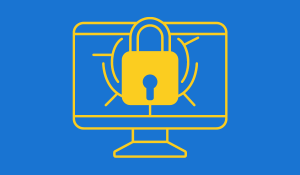If your architecture firm lost access to all of its drawings, Revit files, or client records tomorrow, could you recover?
Without a strong data backup system in place, many architecture firms are at risk of permanent data loss, long delays, and costly setbacks. Whether it’s a ransomware attack, hardware failure, or accidental deletion, the question isn’t if something will happen—but when.
This guide will show you how to protect your firm’s files, projects, and reputation with reliable data backup solutions built for architecture professionals.
Why Data Backup Is Critical for Architecture Firms
Architects depend on complex software, large design files, and long-term project documentation. Losing access to your data can delay permitting, derail construction schedules, or damage your client relationships. That’s why secure backup isn’t just an IT task—it’s part of running a resilient firm.
Common risks include:
- Corrupted Revit or AutoCAD files
- Malware and ransomware attacks
- Hard drive or server crashes
- Accidental file deletions
- Natural disasters or power outages
If your firm’s files aren’t backed up regularly—and recoverable—your projects and reputation are at stake.
File Sync Tools vs. True Cloud Backup for Architects
Using Dropbox, OneDrive, or Google Drive to store architectural plans is common. But these platforms aren’t designed for full data recovery. They sync files, not back them up.
Here’s the problem: if a synced file is deleted or encrypted by ransomware, those changes are instantly mirrored across all devices. That means the damage is shared—not prevented.
A true cloud backup system for architecture firms provides version control, point-in-time recovery, and secure offsite storage. You’ll be able to restore your files quickly, even after a major incident.
Key Questions to Evaluate Your Backup Strategy
If you’re not sure your architecture firm has the right system in place, ask these questions:
1. How quickly can we recover our Revit files or project data?
Minutes matter when you’re on deadline. A slow recovery process can put you behind schedule or force rework.
2. Are we backing up everything—automatically?
Manual backups are risky. You need automatic, scheduled backups that cover workstations, servers, and design software files.
3. Have we tested our backup recovery process?
Many firms assume their backups are working… until they try to restore and find out otherwise. Regular testing is the only way to know your system works.
What the Best Backup Systems for Architects Include
To protect your architectural projects and business operations, look for these features:
- Daily automatic backups of all key systems
- Secure offsite and cloud-based storage
- Support for large design files (e.g., Revit, AutoCAD, SketchUp)
- Quick recovery options for full systems and individual files
- Ongoing monitoring and alerts
- Backup testing and reporting
A reliable backup solution helps you meet project timelines, protect sensitive client data, and comply with contractual or regulatory requirements.
Signs It’s Time to Upgrade Your Architecture Firm’s Backup Plan
- Your backup process is manual or inconsistent.
- You’re not sure where your data is stored—or if it’s encrypted.
- You’ve added new staff, locations, or tools without adjusting your backup system.
- You’ve never tested a restore of a deleted file or system crash.
If any of these sound familiar, it’s time for a data risk review.
Get Expert Help with Architectural Data Protection
Your blueprints, 3D models, and client files are your firm’s foundation. Don’t leave them exposed.
Endsight works with architecture firms across California to provide dependable, managed data backup systems that protect project files, improve resilience, and reduce downtime.
We’ll assess your current setup and help you build a recovery plan that keeps your team working—even when something goes wrong.
Want to take your IT strategy even further? Download our free guide,
Achieve IT Mastery: A Guide for Architecture Firms, to learn how smart IT decisions can strengthen every part of your practice—from data protection to team productivity. If you're ready to move beyond backup and build a firm that’s prepared for whatever comes next, this guide is for you.



/jclause.jpg)
